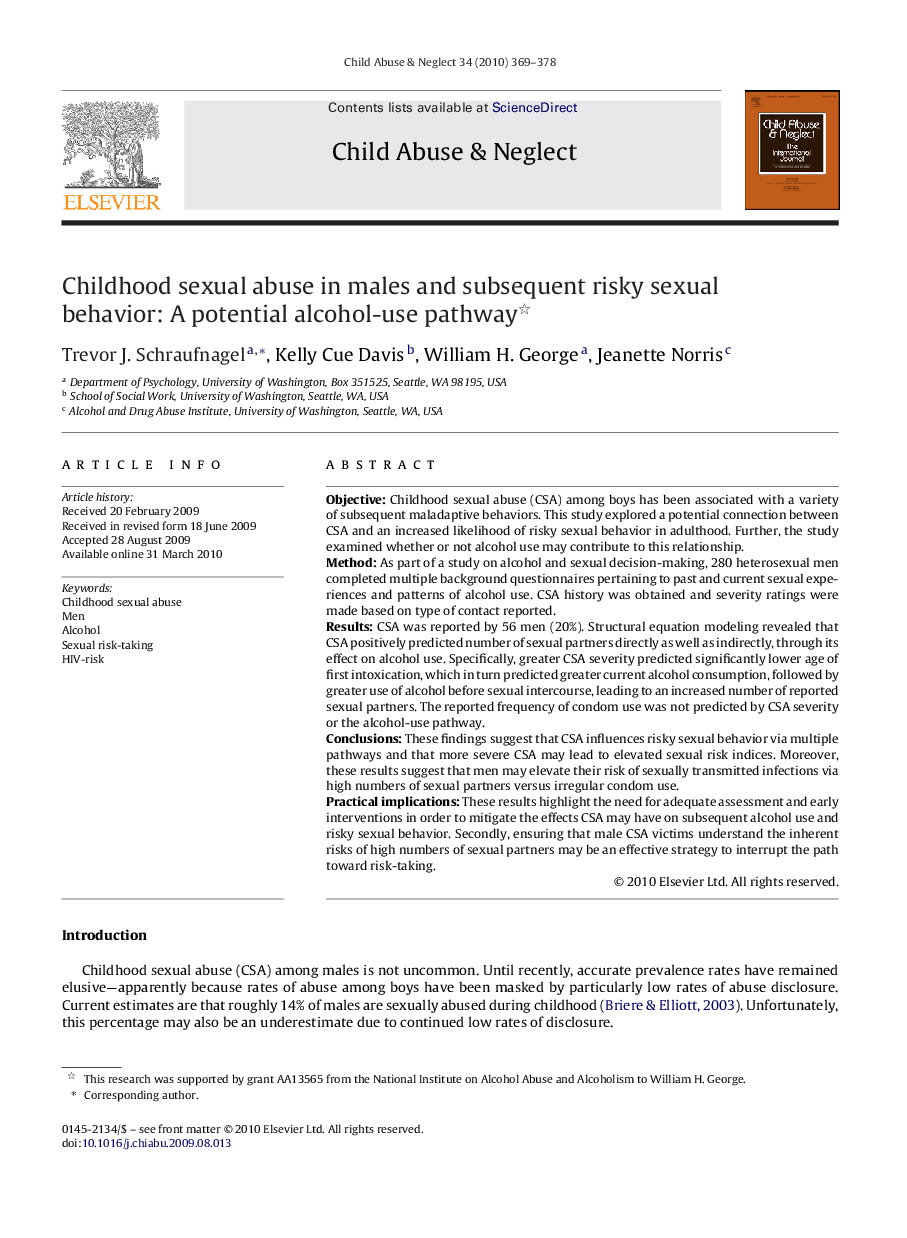ترجمه فارسی عنوان مقاله
سوء استفاده جنسی دوران کودکی در مردان و رفتارهای جنسی پرخطر پس از آن: مسیر بالقوه استفاده از الکل
عنوان انگلیسی
Childhood sexual abuse in males and subsequent risky sexual behavior: A potential alcohol-use pathway
| کد مقاله | سال انتشار | تعداد صفحات مقاله انگلیسی |
|---|---|---|
| 35884 | 2010 | 10 صفحه PDF |
منبع

Publisher : Elsevier - Science Direct (الزویر - ساینس دایرکت)
Journal : Child Abuse & Neglect, Volume 34, Issue 5, May 2010, Pages 369–378
ترجمه کلمات کلیدی
- سوء استفاده جنسی دوران کودکی - مردان - الکل - جنسی ریسک پذیری - خطر اچ آی وی
کلمات کلیدی انگلیسی
Childhood sexual abuse; Men; Alcohol; Sexual risk-taking; HIV-risk

